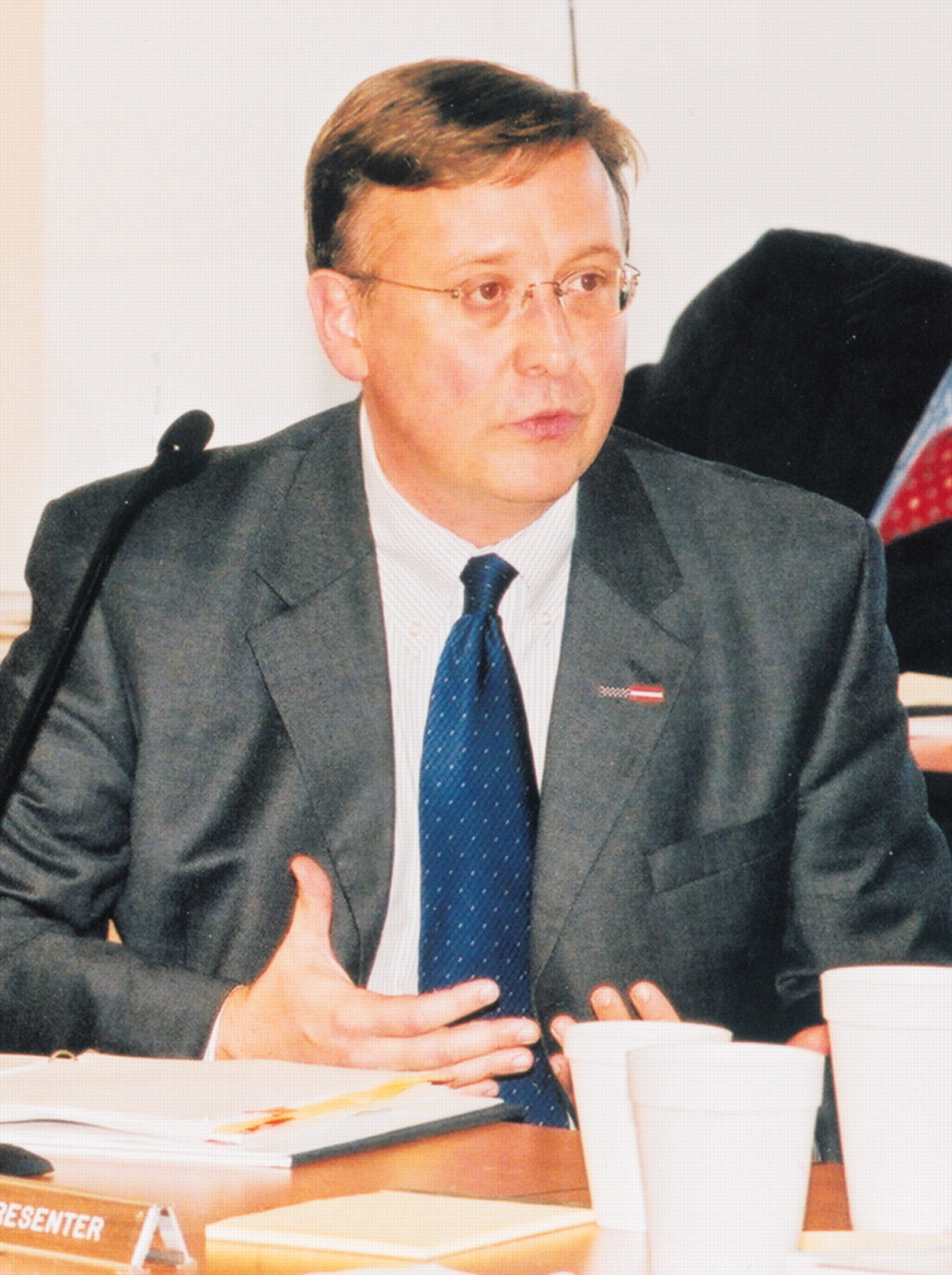Charles Curie, M.A., director of the federal Substance Abuse and Mental Health Services Administration (SAMHSA), wants to invest U.S. resources in building a new Iraqi mental health system that is community based and integrated with primary care.
“Iraq still uses an outdated system of institutions to treat the seriously mentally ill. There are only two psychiatric hospitals in the entire country, located in the capital city of Baghdad, serving the entire population of 24 million,” Curie told Psychiatric News.
Rather than support or build more psychiatric institutions, Curie wants to use U.S. expertise and assistance to build a community-based system of care that is integrated into the nearly 1,000 health care clinics now operating in Iraq.
Curie accompanied Health and Human Services (HHS) Secretary Tommy Thompson on a two-day visit to Iraq in February. They toured three hospitals and met with health officials, medical personnel, and patients to assess the health and mental health needs of the Iraqi health system, according to Curie.
He also spoke with his Iraqi counterpart, Sadik Sabah, M.D., who is the mental health advisor to Iraqi Minister of Health Khodair Abbas, M.D.
To help rebuild the decimated health care system, Abbas recently returned to Iraq after having lived in exile in England during Saddam Hussein’s dictatorship, according to an HHS press release.
Curie described his visit to Iraq to the APA Board of Trustees at its March meeting in Washington, D.C. APA President Marcia Goin, M.D., commented afterward to Psychiatric News, “Mr. Curie was clearly enthusiastic about mental health playing a prominent role in the reconstruction of Iraq and its health care system.”
Goin said she and her colleagues had a similar enthusiastic response to recommendations for rebuilding Iraq’s mental health system made at a conference sponsored by the World Health Organization and the World Psychiatric Association in Cairo last July (Psychiatric News, September 5, 2003).
“I suspect,” Curie said, “that rates of posttraumatic stress disorder are endemic in Iraq because large numbers of Iraqis were tortured and traumatized under Hussein’s brutal dictatorship.”
Many physicians were traumatized by having to watch patients die in emergency rooms for lack of sutures and other medical supplies, Curie said. “We heard that Hussein held back lifesaving medications so that he could blame the resulting deaths on the U.S. trade embargo.”
Curie is aware of the country’s shortage of psychiatrists and mental health professionals (see
page 1). “There is already an effort under way by Iraqi psychiatrists and mental health professionals to train primary care professionals to conduct mental health assessments and counseling and to know when to refer to local psychiatrists,” said Numan Ali, M.D., secretary-general of the Iraqi Society of Psychiatrists, in an online interview with
Psychiatric News.
Curie said that an Iraqi behavioral health care task force had asked for U.S. medical assistance and expertise.
The SAMHSA administrator envisions international teams of psychiatrists and mental health professionals visiting Iraq in the next six months to help expand the mental health training of local health care professionals. He said that mental health officials in New Zealand and England have expressed interest in joining the United States in sending teams of mental health experts to Iraq.
In addition, Curie would like to establish partnerships between U.S. and Arab medical schools and specialty-training programs to facilitate professional exchanges with Arab physicians and mental health professionals.
He cautioned, “We must also ensure that any Western assistance is culturally sensitive to Iraqi and Arab cultures, as well as to the numerous ethnic and religious minorities and tribes living in Iraq.”
Funding in the short term for international medical teams will come from SAMHSA’s 2004 budget. “We don’t know yet how the long-term partnerships will be funded. We hope that our international partners will invest some resources also,” Curie said.
He was optimistic that the U.S. military in Iraq could continue to provide adequate security for medical teams visiting Iraq. “If you follow the military’s safety guidelines and avoid venturing into unknown areas, you should be all right,” Curie said. ▪

